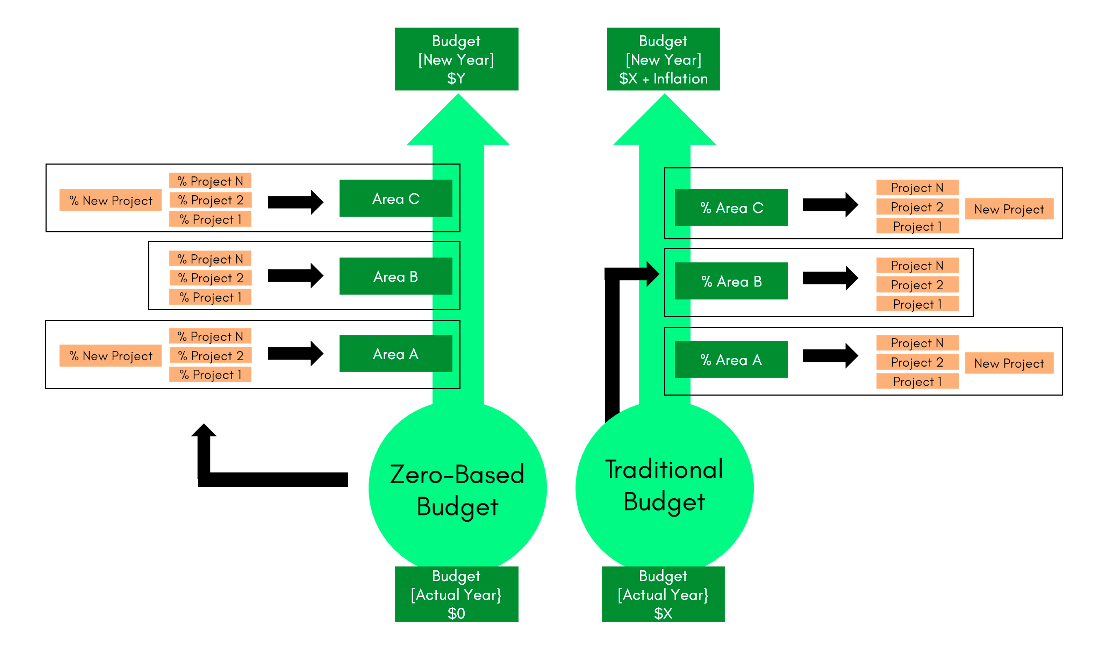August 6, 2020 | Business Management
by José A. Miranda, Luz María Ávila
Digitalization requires a new approach to resource management to drive growth.
The impact of technology on company processes forces executives to manage resources in a more agile and appropriate way, which generates a greater innovative spirit within the organization.
Still unfinished, 2020 will be the year in which companies changed the way they manage their resources, proposed a strategic plan to be adapted to market needs, redesigned their offer, and finally faced the natural dynamism of consumers.
It will also be the year when companies finally faced digitalization and understood the role of technology.
And, without a doubt, it will be the year in which the executives had to rebuild “from zero” the financial plans of the year… in the middle of the year, for the first time in their business life.
Hence, a new budgeting approach is needed to deal with the elaboration of new strategic plans, regardless of how they have been previously developed. This method is known as “Zero-Based Budgeting”.
The main difference from the traditional approach is that no resources are automatically included, instead, each new item or expenditure is thoroughly reviewed and must be justified within the budget.
Sometimes, this change in the cost management process is often quite hard to assume by responsible areas, since it has an impact on the organizational structure, projects, and resources, and therefore on the position of people within the company.
In today’s dynamic economy due to digitalization, cost management via Zero-Based Budget should be part of the organizational culture
To ensure this impact does not drastically affect companies, they should continuously apply Zero-Based Budget management as part of their best practices, which implies a major cultural change within the organization.
Under this perspective, the budget elaboration should generate important savings in all departments, especially in those that are underperforming, this could potentially generate a focus shift in those highly productive areas, continuously boosting innovation throughout the company.
However, dealing with the elaboration of a Zero-Based Budget is not an easy-going process, it requires significant internal resources.
Cost savings as a primary objective should not be the focus of organizations. Reallocating resources to those tasks or projects with the highest performance for the company is the best way to take advantage of the opportunity cost.

On the one hand, it is necessary to have detailed control of the costs of each area in a standardized way, which is not easy to achieve on many occasions.
This requires a solid alignment of the different areas across the organization, which will become an advantage in terms of efficiency in resource management.
Secondly, this methodology facilitates cost reduction by automatically and continuously limiting budget increases due to benchmarks such as inflation.
However, these advantages have their counterparts in the form of disadvantages.
Developing a Zero-Based Budget exercise for the first time may take about six months, up to a full year for some companies.
And of course, it demands a great deal of resources to identify all expenditure items and new project opportunities that will drive higher performance.
Hence, all departments of the company must be involved in the process, from the back-office to the front-office areas.
It is important to bear in mind that the application of this methodology aims to eliminate unproductive costs, but it should not be seen only as strictly cost-saving. This technique should allow a better allocation of resources on projects with greater potential, which should facilitate the company’s growth.
2021 arrived just three months after the start of 2020. This will enable companies to gain time to redesign their strategies, reallocate resources, and resize structures to reposition themselves in the market in a lighter and more agile way.
Embracing continuous change is a necessity for any company in the age of technology. And, for this, having tools like Zero-Based Budget that facilitate dynamism and flexibility becomes an organizational advantage that will lead to identify new business opportunities and meet the objectives more healthily and sustainably.
José A. Miranda is Managing Partner at Naawa, Luz María Ávila is Marketing Solutions Partner at Naawa.
Copyright © 2020 Naawa Consulting. All rights reserved.
Download the full article PDF here:
